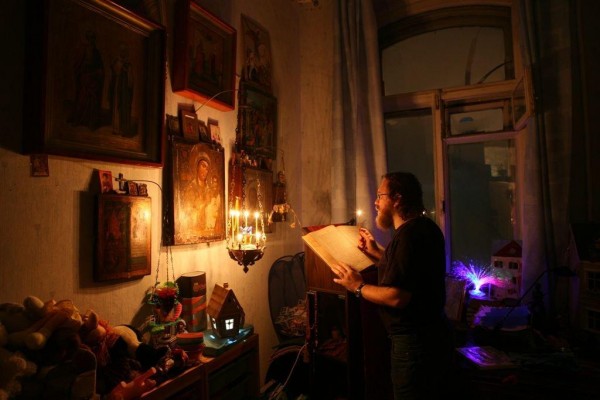The Beginning of Wisdom
The Lenten Readings from Proverbs
III Lent Tuesday – Proverbs 8:32 – 9:11
You can listen to an audio podcast of this post at https://www.spreaker.com/episode/tuesday-of-the-third-week-of-great-lent–59245657
My son: Now then, hear me: blessed is the man who shall hearken to me, and the mortal who shall keep my ways; 34 watching daily at my doors, waiting at the posts of my entrances. 35 For my outgoings are the outgoings of life, and in them is prepared favour from the Lord. 36 But they that sin against me act wickedly against their own souls: and they that hate me love death. 9:1 Wisdom has built a house for herself, and set up seven pillars. 2 She has killed her beasts; she has mingled her wine in a bowl, and prepared her table. 3 She has sent forth her servants, calling with a loud proclamation to the feast, saying, 4 Whoso is foolish, let him turn aside to me: and to them that want understanding she says, 5 Come, eat of my bread, and drink wine which I have mingled for you. 6 Leave folly, that ye may reign for ever; and seek wisdom, and improve understanding by knowledge. 7 He that reproves evil men shall get dishonour to himself; and he that rebukes an ungodly man shall disgrace himself. 8 Rebuke not evil men, lest they should hate thee: rebuke a wise man, and he will love thee. 9 Give an opportunity to a wise man, and he will be wiser: instruct a just man, and he will receive more instruction. 10 The fear of the Lord is the beginning of wisdom, and the counsel of saints is understanding: for to know the law is the character of a sound mind. 11 For in this way thou shalt live long, and years of thy life shall be added to thee.
Verses 9:1-11 are familiar to everyone who attends Vespers or Vigils faithfully, for they constitute the third Old Testament reading at Vespers for the feasts of the Holy Theotokos and Ever Virgin Mary. The reading foretells the Mother of God’s part in the economy of the Incarnation of the Word by prophesying that the Logos of God would build a house for Himself – i.e., the human nature which He hypostatically united to His divinity – by taking flesh from the Virgin. (The fact that the inspired writer speaks of the Wisdom of God as “she” does not mean that the Wisdom of God is feminine; the use of the feminine here is a poetic device, not an ontological assertion, contrary to the teaching of the ridiculous 20th century heresy called “Sophianism.” St. Paul tells us plainly in I Corinthians 1: 24 that it is Christ, the Incarnate Word, Who is the wisdom and power of God.)
Thus the image of the house in our reading today refers to Our Lord’s human nature. Now, what do the seven pillars mean? Some of the Holy Fathers, including St. John Chrysostom, say that the image of the seven pillars refers to the seven gifts of the Holy Spirit enumerated in Esaias 11:2: Wisdom, understanding, counsel, strength, knowledge, piety, and the fear of God. Others say that the seven pillars are the holy churches of the one, holy, catholic, and apostolic Church spread throughout the world. Here, for example, is what St. Gregory the Dialogist (the Great, pope of Rome) says about this:
We may also not inappropriately interpret “the pillars of heaven” as the churches themselves. Being many in number, they constitute one catholic church spread over the whole face of the earth. So, too, the apostle John writes to the seven churches [in the Book of Revelation], meaning to denote the one catholic church replenished with the Spirit of sevenfold grace, and we know that Solomon said of the Lord, “Wisdom has built her a house; she has hewn out her seven pillars.” And to make known that it was of the seven churches he had spoken, which sedulously introduced the very sacraments themselves also, he says, “She has killed her sacrifices, she has mingled her wine, she has also set forth her table.” – Moralia on Job 4.17.43
The “sacrifices,” then, of our reading today, are a prophecy of the Holy Mysteries of the Church. St. Bede the Venerable writes that the expression “mingled her wine in a bowl” refers to the wine mixed with water that becomes the Blood of Christ in the Mystery of Holy Communion. The mixing of wine with water signifies the union of the Lord’s divinity with His sacred humanity:
By divine eloquence, the nature of his divinity and humanity conjoined in Christ’s one person is expressed through this bread and mixed wine, as was said above. …the mystery through which we are satiated at the table of his altar is clearly shown in the bread of his body and in the mixed wine of his most holy blood. – Commentary on Proverbs
One might add that the writings of the Holy Fathers, such as these, are also a spiritual banquet, laid out for our sake graciously by the divine Wisdom, a banquet that never fails to delight us and nourish our hungry souls.
It is good to be Orthodox.

